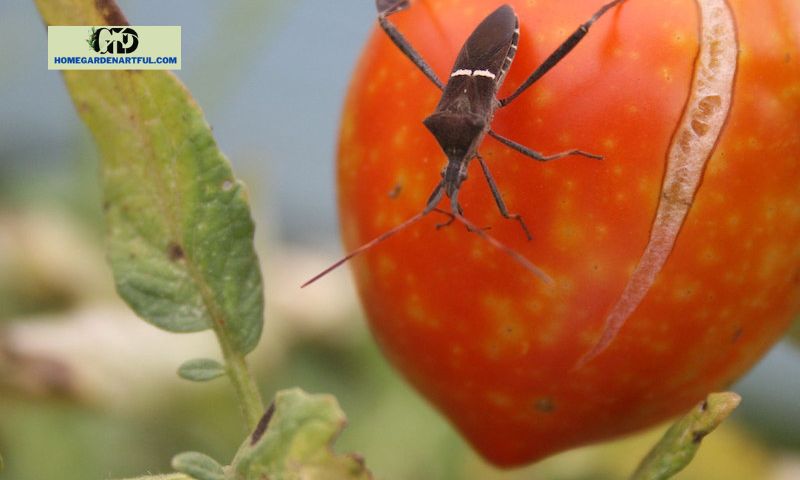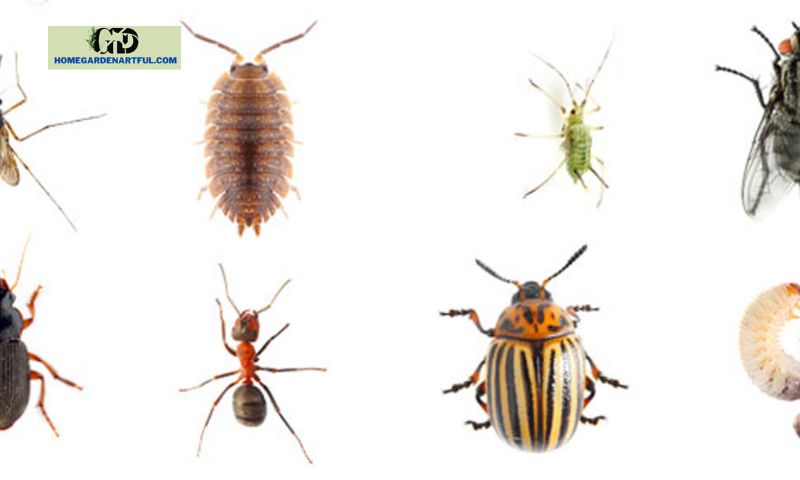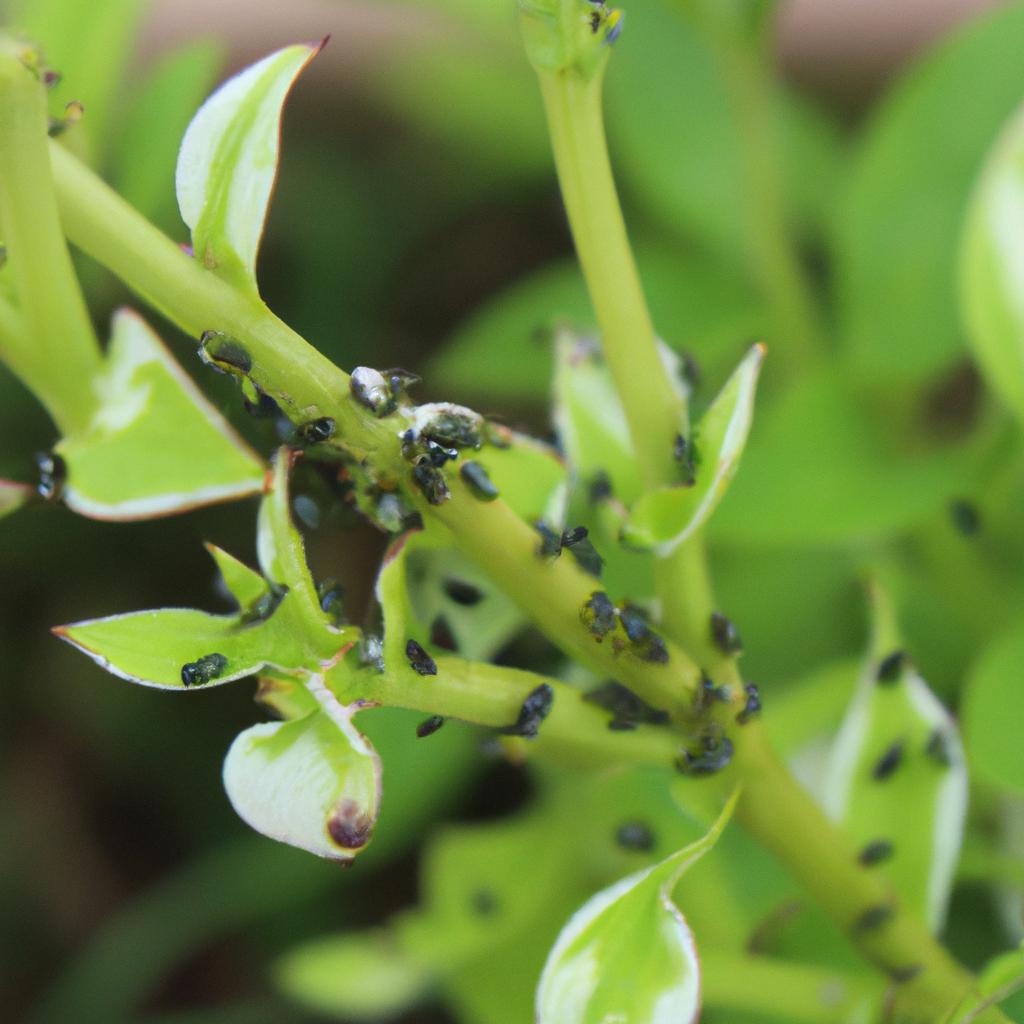Do you know georgia garden pests? Are you tired of your beautiful Georgia garden being invaded by pests? Do you find yourself constantly battling unwanted insects and critters that threaten to destroy your precious plants? Look no further, as homegardenartful.com is here to guide you through the world of Georgia garden pests and help you reclaim your garden sanctuary.
A. Importance of addressing garden pests in Georgia
Georgia, known for its lush landscapes and vibrant flora, is unfortunately not exempt from the wrath of garden pests. These tiny intruders can wreak havoc on your plants, causing damage that ranges from unsightly blemishes to complete destruction. Neglecting to address these pests can result in stunted growth, reduced yields, and even the loss of your carefully nurtured garden.
B. Overview of the impact of pests on Georgia gardens
Picture this: you’ve spent countless hours tending to your garden, carefully nurturing each plant to perfection. But then, out of nowhere, pests swoop in like uninvited guests, feasting on your hard work. From aphids and caterpillars to snails and slugs, these pests can quickly multiply and decimate your plants, leaving you with a garden in despair.
C. Brief explanation of the article’s purpose and content
In this comprehensive guide, we will delve into the world of Georgia garden pests, equipping you with the knowledge and strategies to combat these unwelcome visitors. From identifying common pests to understanding their life cycles and implementing effective prevention and control measures, we’ll cover it all. Additionally, we’ll explore the concept of integrated pest management (IPM) and its application in Georgia gardens, ensuring long-term protection for your green haven.
Stay tuned as we navigate through this garden adventure, empowering you to take charge and restore harmony in your Georgia garden. Together, we’ll banish those pests and create a haven where your plants can thrive and flourish.
Common Garden Pests in Georgia

A. Identification and Description of the Most Prevalent Pests in Georgia Gardens
When it comes to Georgia plant pests, it’s essential to familiarize yourself with the enemy. Let’s shine a light on some of the most common culprits you may encounter in your garden:
- Aphids: These tiny, pear-shaped insects may seem harmless, but they can quickly multiply and suck the life out of your plants, causing stunted growth and distorted leaves.
- Caterpillars: The voracious appetite of caterpillars knows no bounds. These larvae can devour your plants’ foliage, leaving behind chewed leaves and an unsightly mess.
- Snails and Slugs: These slimy intruders revel in moist environments and can leave behind a trail of destruction. They have a particular fondness for tender leaves and can quickly decimate your plants.
B. Specific Threats Posed by Each Pest
Each garden pest brings its own unique set of threats and challenges. Let’s take a closer look at the specific dangers associated with these common pests:
- Aphids: Besides their ability to weaken plants, aphids also excrete sticky honeydew, which attracts ants and can lead to the growth of black sooty mold, further harming your plants.
- Caterpillars: These hungry critters can defoliate your plants, leaving them weak and vulnerable to other diseases and pests. Some caterpillars, like the tomato hornworm, can consume entire leaves in no time.
- Snails and Slugs: These moisture-loving pests can leave irregular holes in leaves and even feast on your precious fruits and vegetables. Their nocturnal nature makes them difficult to spot, making it crucial to stay vigilant.
C. Examples of Plants Commonly Affected by These Pests
Garden pests in Georgia have quite a diverse palate, but some plants tend to be more susceptible to their attacks than others. Here are a few examples:
- Aphids: Roses, tomatoes, peppers, and citrus trees are often targeted by these sap-sucking insects.
- Caterpillars: Cabbage, broccoli, and other cruciferous vegetables are a favorite meal for caterpillars, while the larvae of the squash vine borer can wreak havoc on your squash plants.
- Snails and Slugs: Hostas, lettuce, and strawberries often fall victim to these slimy pests, but they won’t hesitate to munch on a variety of other plants as well.
Now that we’ve acquainted ourselves with the common pests and their destructive tendencies, it’s time to explore strategies to keep them at bay.
Understanding the Life Cycle of Georgia Garden Pests

A. Explanation of the life stages of common pests
To effectively combat garden pests in Georgia, it is crucial to understand their life cycles. Pests go through distinct stages of development, each presenting unique challenges and vulnerabilities. From eggs to larvae, pupae, and finally, adulthood, these pests undergo a metamorphosis that directly impacts their behavior and the strategies we can employ to control them. By familiarizing ourselves with these life stages, we gain valuable insight into the optimal timing and methods for intervention.
B. Insight into the behavior and habits of these pests
Have you ever wondered why some pests seem to target specific plants or exhibit certain behaviors? Understanding the behavior and habits of garden pests is key to implementing effective control measures. Some pests may be nocturnal, while others thrive in daylight. Some pests prefer to munch on leaves, while others burrow into fruit or bore through stems. By unraveling these mysteries, we can devise targeted strategies that disrupt their activities and protect our precious plants.
C. Understanding the seasonal patterns of pest activity in Georgia
Georgia’s climate plays a significant role in the activity of garden pests throughout the year. As the seasons change, so do the types and intensity of pest infestations. By recognizing the patterns of pest activity in different seasons, we can proactively prepare and take preventive measures. For instance, certain pests may be more prevalent during warm, humid months, while others thrive in cooler temperatures. Armed with this knowledge, we can anticipate and address pest problems before they escalate, ensuring a thriving and resilient garden.
With a deeper understanding of the life cycle, behavior, and seasonal patterns of Georgia garden pests, you are well-equipped to devise effective control strategies. In the next section, we will explore preventive and control measures that can help you reclaim your garden from these persistent intruders.
Prevention and Control Measures for Georgia Garden Pests
A. Implementing proactive measures to prevent pest infestations
Prevention is always better than cure, especially when it comes to garden pests in Georgia. By taking proactive measures, you can significantly reduce the likelihood of pest infestations and minimize the damage they cause. Here are some effective strategies:
- Maintain garden hygiene: Keep your garden clean and tidy, as debris and weeds can provide hiding spots for pests. Regularly remove fallen leaves, weeds, and any decaying plant material that might attract pests.
- Practice crop rotation: Rotate your crops each season to disrupt the life cycles of pests. This prevents them from becoming established and reduces the risk of infestations.
- Choose pest-resistant varieties: When selecting plants for your garden, opt for varieties that are known to be resistant to common pests in Georgia. This reduces the likelihood of pests causing significant damage.
B. Natural methods for controlling pests in Georgia gardens
If you prefer to steer clear of chemicals, there are several natural methods you can employ to control garden pests in Georgia. These eco-friendly approaches not only help protect your plants but also preserve the overall ecosystem of your garden. Consider the following:
- Beneficial insects: Encourage beneficial insects, such as ladybugs, lacewings, and praying mantises, to thrive in your garden. They act as natural predators, feasting on common pests like aphids and caterpillars.
- Companion planting: Planting certain species together can help repel pests. For example, marigolds can deter aphids, while basil can keep mosquitoes at bay. Research companion planting combinations that work well in Georgia.
- Organic sprays: Create your own natural insect sprays using ingredients like neem oil, garlic, or soap. These concoctions can be effective in controlling pests without harming beneficial insects or the environment.
C. Safe and effective chemical options for pest control
Sometimes, despite best efforts, pests may still pose a significant threat to your garden. In such cases, you may consider using safe and effective chemical options to control their population. However, it’s important to prioritize the health of your plants, yourself, and the environment. Here are some guidelines to follow:
- Read labels carefully: Always read and follow the instructions provided on pesticide labels. Pay attention to recommended doses, target pests, and safety precautions.
- Targeted applications: Apply pesticides only to the affected areas or specific plants, rather than using a blanket approach. This helps minimize the impact on non-target organisms and reduces chemical residues.
- Choose low-toxicity options: Opt for pesticides with low toxicity to humans, pets, and beneficial insects. Look for products labeled as organic, botanical, or with reduced environmental impact.
By implementing proactive measures, exploring natural pest control methods, and using chemical options responsibly, you can effectively protect your Georgia garden from the clutches of pests. Remember, a well-prepared garden is a resilient garden!
Integrated Pest Management in Georgia Gardens
A. Introduction to the concept of integrated pest management (IPM)
When it comes to effectively managing garden pests in Georgia, it’s essential to adopt a holistic approach. Enter integrated pest management (IPM), a sustainable and environmentally friendly method that focuses on long-term pest prevention and control. IPM combines various strategies, including cultural practices, biological controls, and targeted pesticide applications, to achieve a balanced and thriving garden ecosystem.
B. Benefits of using IPM techniques in Georgia gardens
Why should you consider implementing IPM techniques in your Georgia garden? Well, the benefits are numerous. Firstly, IPM reduces the reliance on harmful chemical pesticides, minimizing potential harm to beneficial insects, wildlife, and the environment. It promotes natural pest control by encouraging the presence of beneficial insects, such as ladybugs and lacewings, which act as natural predators to garden pests.
Furthermore, IPM helps maintain a healthy and resilient garden by preventing pest outbreaks before they occur. By consistently monitoring your garden for signs of pests and taking proactive measures, you can address any issues swiftly and effectively. This proactive approach saves you time, money, and frustration in the long run.
C. Step-by-step guide on implementing IPM practices in your garden
Now, let’s dive into the practical side of IPM. Follow this step-by-step guide to successfully implement IPM practices in your Georgia garden:
1. Monitor and identify pests
Regularly inspect your plants for signs of pest infestation. Look for chewed leaves, discolored foliage, or the presence of eggs or larvae. Proper identification is crucial for choosing the most appropriate control methods.
2. Encourage biodiversity
Create a garden that attracts beneficial insects and wildlife by planting a variety of flowers, herbs, and native plants. These natural allies will help control pests and maintain a balanced ecosystem.
3. Practice cultural controls
Implement cultural practices that reduce pest susceptibility. This includes proper watering, pruning, and spacing of plants, as well as removing plant debris and weeds that may harbor pests.
4. Use biological controls
Introduce beneficial insects, such as ladybugs or nematodes, to your garden to naturally control pest populations. You can purchase these beneficial organisms from reputable suppliers.
5. Consider targeted pesticide applications
If all else fails and pests persist, resort to targeted pesticide applications as a last resort. Choose low-toxicity pesticides and apply them directly to affected areas, following the manufacturer’s instructions carefully.
By following these steps, you’ll be well on your way to successfully implementing IPM practices in your Georgia garden. Embrace the power of this integrated approach and witness the transformation as your garden thrives, free from the clutches of pests.
Conclusion and Resources
In conclusion, tackling garden pests in Georgia is crucial to maintain the health and beauty of your garden. By addressing these pests head-on, you can protect your plants from the devastating effects of infestations. Remember, prevention is key, so implementing proactive measures and understanding the life cycles of common pests can make a world of difference.
Integrated pest management (IPM) offers a holistic approach to pest control, combining various techniques to minimize the use of chemicals while maximizing results. By implementing IPM practices, you can effectively manage pests in a sustainable and eco-friendly manner.
To further enhance your knowledge and arm yourself against these garden invaders, here are some valuable resources:
- Georgia Pest Management Handbook: This comprehensive guide provides detailed information on common pests, their identification, and recommended control methods specific to Georgia gardens.
- University of Georgia Extension: The extension service offers a wealth of resources, including articles, publications, and workshops, to help you navigate the world of gardening and pest management.
- Local gardening communities: Engaging with local gardening communities can provide valuable insights and tips from experienced gardeners who have successfully dealt with Georgia garden pests.
Remember, persistence and vigilance are key when it comes to managing garden pests. Regular monitoring, early detection, and prompt action will greatly contribute to the success of your pest control efforts.
So, don’t let these uninvited guests ruin your garden oasis. Armed with knowledge, proactive measures, and the right resources, you can reclaim your Georgia garden and create a thriving haven for your plants to flourish.
Happy gardening and may your garden remain pest-free!


